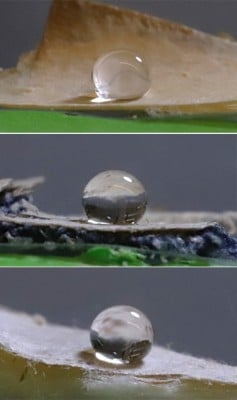Researchers at the American Chemical Society’s journal Langmuir have discovered a sustainable method to create waterproof materials using an edible fungus. This innovative approach aims to reduce reliance on single-use plastics, such as plastic wraps and coatings for paper cups, which are significant contributors to environmental pollution.
By combining the fungus with fibers derived from wood, the research team developed a protective layer that effectively prevents water, oil, and grease absorption. This breakthrough could transform how everyday products are manufactured, offering a viable alternative for industries seeking to minimize their ecological footprint.
Innovative Material Applications
The new waterproofing technique is particularly relevant as global demand for sustainable materials continues to grow. Traditional coatings often rely on synthetic chemicals, which can harm the environment during production and disposal. In contrast, the use of an edible fungus not only enhances the properties of paper and textiles but also aligns with a circular economy approach by utilizing renewable resources.
The versatility of this material could extend to various applications, from food packaging to clothing. This could reduce the need for harmful plastic alternatives, thereby contributing to environmental conservation efforts.
Research Details and Future Implications
The study, published on October 12, 2023, highlights how the fungus forms a barrier that maintains the integrity of the material while providing essential water resistance. This is especially important in industries where hygiene and product longevity are crucial.
As the world increasingly focuses on sustainability, innovations like this pave the way for a greener future. If adopted widely, such materials could significantly decrease plastic waste and promote a healthier planet. The implications of this research extend beyond just materials science; they offer a glimpse into a future where daily products are both functional and environmentally friendly.
In conclusion, the findings from the Langmuir journal not only showcase scientific advancement but also reflect a growing commitment to sustainability within the research community. The continued exploration of biodegradable and renewable materials is essential as society seeks to combat the pressing challenges of climate change and resource depletion.







